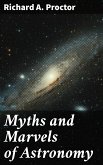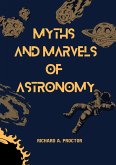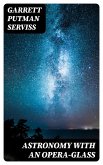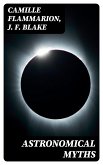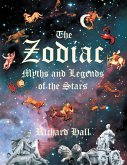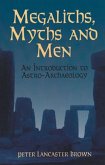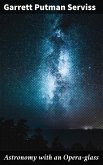In "Myths and Marvels of Astronomy," Richard A. Proctor explores the intricate web of folklore and scientific inquiry surrounding celestial bodies and cosmic phenomena. Through a blend of engaging prose and meticulous scholarship, Proctor draws upon historical texts, ancient mythologies, and contemporary astronomical principles to unveil the rich narratives that have shaped human understanding of the universe. The book showcases Proctor's mastery of intertwining literary styles, seamlessly transitioning from mythological anecdotes to scientific analysis, thus providing a holistic view of humanity's quest to comprehend the cosmos. Richard A. Proctor, a prominent astronomer and writer in the 19th century, possessed a passion for both the celestial sciences and the mythological interpretations of those phenomena. His career was marked by a dedication to public education in astronomy, which undoubtedly influenced his desire to present the myths and scientific facts in tandem. Proctor's writings reflect his belief that understanding the cultural significance of astronomy is as crucial as grasping its scientific underpinnings. For readers fascinated by the interplay between science and storytelling, this book offers a compelling invitation to delve into the wonders of the universe. "Myths and Marvels of Astronomy" is not only an enlightening read for astronomy enthusiasts but also a treasure trove for those intrigued by the narratives that have forged our connection to the stars.
Dieser Download kann aus rechtlichen Gründen nur mit Rechnungsadresse in A, B, BG, CY, CZ, D, DK, EW, E, FIN, F, GR, H, IRL, I, LT, L, LR, M, NL, PL, P, R, S, SLO, SK ausgeliefert werden.



